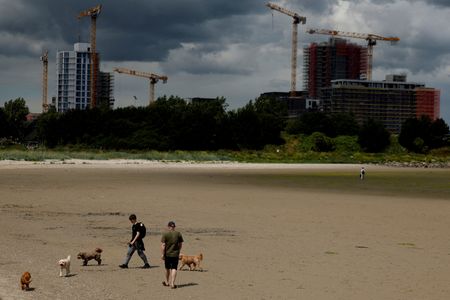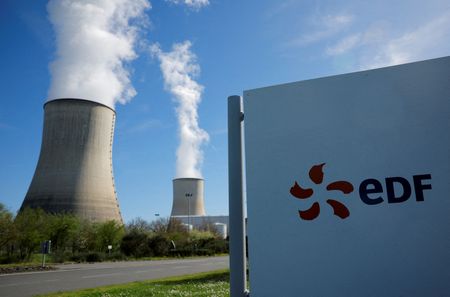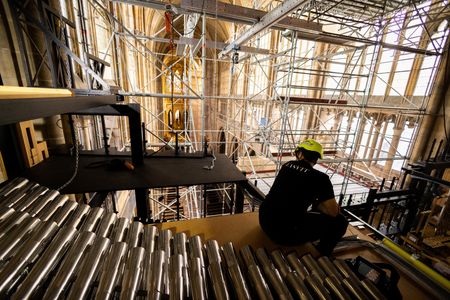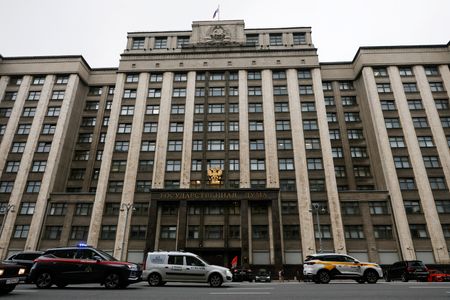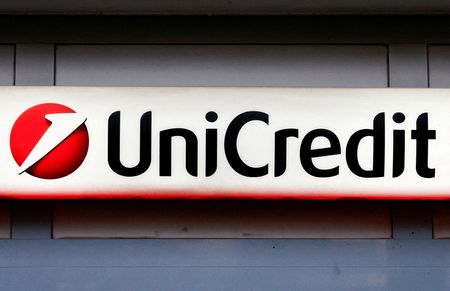By Padraic Halpin
DUBLIN (Reuters) -Ireland will boost spending on infrastructure over the next five years by 23%, a plan hailed by Prime Minister Micheal Martin as a “step change” made possible by a 14 billion euro ($16 billion) Apple back-tax windfall and the proceeds of bank share sales.
Ireland has for years failed to use a multinational-driven corporate tax boom to improve creaking energy and water infrastructure and boost housing supply for its fast-growing population. The International Monetary Fund recently estimated that its infrastructure lags competitor economies by around 32%.
Yet with Ireland’s solidly growing economy also among those most vulnerable to U.S. President Donald Trump’s tariff threats, ministers also pledged to curtail hikes in 2026 day-to-day spending to 6.4% and to moderate further in future years from the 8-9% range in recent budgets.
They also said they would reduce next year’s planned 9.4 billion euro package of tax cuts and spending increases, if U.S. tariffs are higher than the 10% currently in place.
The government said it would prioritise capital spending in energy infrastructure, diversifying sources of energy, extending public transport, improving roads and making a “definitive” investment in water services to enable homebuilding.
Ireland’s national water utility has warned it will not be able to adequately service a targeted leap in new house building without a large boost to its funding.
The government is already behind in its targets to boost much-needed housing supply.
It had originally earmarked 91.3 billion euros for capital projects from 2026 to 2030, equivalent to an average of 5% of national income per year.
The revised plan will see that ratio growing from 5.35% in 2026 to 6.65% in 2030, while also providing 10 billion euros in one-off equity funding for large water, energy and transport projects, bringing the total to 112 billion euros.
The plan also envisages the scale of capital spending remaining at 6.65%, or 20 billion euros a year, until 2035.
While Tuesday’s boost comes on top of recent sharp increases in the capital budget, investment has been growing from a low base, as Ireland’s economic crash 15 years ago led to prolonged austerity that brought capital spending to a standstill.
The plan marks a “significant moment” that will allow the private sector to invest with confidence, said Ferga Kane, Irish infrastructure partner at accountancy EY.
However she and other analysts said the government needed to improve the speed of delivering big projects – which was also criticised by the IMF – by strengthening planning, cutting decision timelines and boosting construction productivity.
“There must be a significant improvement in how nationally important projects are delivered,” said Fergal O’Brien, a director at business lobby group Ibec.
($1 = 0.8533 euros)
(Reporting by Padraic Halpin; Editing by Tomasz Janowski and David Holmes)

